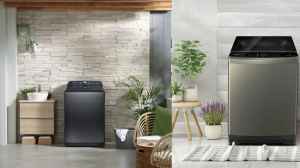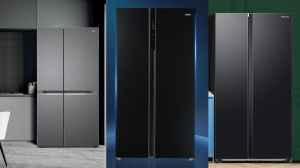The process of selecting an air conditioner may get overwhelmingly confusing for users since the wide number of options available coupled with constant marketing about special features makes it difficult to understand which AC will be the right choice. Some necessary deciding aspects based on the users part include factors like room size, initial budget allocation for the AC, how energy efficiency so that operational cost is also economical for the long run. Many of the latest models of AC come powered with advanced cooling technology and multiple smart features which can provide efficient cooling along with easy controlling features that adds value to the users convenience and experience significantly.
Individual Factors To Take In Account For Optimal Cooling
- Room Size: Measuring the room size in square feet would give the idea about which capacity of AC would be adequate for providing efficient cooling. If a user gets a lesser capacity of AC for a big room the cooling time would increase, uneven cooling and higher electricity bill will become probable issues.
- Budget Constraint: Fixing a budget plays one of the most crucial factors in deciding which type or which capacity of AC one gets. Sometimes the upfront cost of an AC may be higher but energy efficient functioning decides on how cost effective it would be when used consistently for summer.
- Region of Residence: The geographical location plays an important role in determining which type of AC would be an adequate fit. Some regions experience high temperature ranges and an air conditioner that can handle the high heat with ambient temperature would be the ideal choice for such places. There are also some air conditioners that come with a dehumidification option which helps in optimizing the moisture level in air making them suitable for regions where humidity is excessively high.
Types Of Air Conditioners For Domestic Use
- Split ACs: This particular type of air conditioner has become quite popular since it combines great value and easy to use efficiency for cooling a home adequately. Split ACs come with two separate units, an indoor unit which dispenses cold air within a living space and an outdoor unit for outdoor installation. The outdoor unit comprises the compressor and the condenser. There are multiple advantages of using the best split air conditioner, since both the units work separately the noise generation is low. These are comparatively better than other types of air conditioners and are more energy efficient. Additionally split air conditioners come equipped with different features that allow them to function effectively well.
- Window ACs: Using a window air conditioner is appropriate for smaller spaces since these come with low cooling capacity and may consume more energy when compared to split AC options. These are single unit air conditioners that come equipped with all the components namely condenser, evaporator, compressor and expansion valve within them and are thus prone to generating noise when functioning although the initial cost of Window ACs are more affordable. To install a window AC, an opening within the room such as a wall opening or window installation is required as the posterior portion of the unit needs to be exposed to the outside space.
- Portable ACs: The name of this type is suggestive to its functionality of being portable and thus can be easily moved from one place to another. The use of a portable AC frees the user from the dependency of installing the unit and is therefore a good choice for immediate use. Its portability comes in the form of being built in a lightweight form which can be carried from one room to another, while some may even come fixed with caster wheels for easy mobility. A portable AC is suitable for people who might face issues with installation due to architectural limitations.
How Does An AC Function?
The functioning principle of an air conditioner is complex and uses multiple components to provide cooling. The essential components that work in tandem to help with making the surrounding comfortable by introducing cold air involves the use of a condenser, evaporator, compressor, expansion valve. These components work together to ensure optimal cooling for indoor space.
The evaporator of an air conditioner uses a refrigerant to eliminate heat from indoors. It is important that air conditioners use eco-friendly refrigerants like the R32 variant, this ensures that the AC does not impact the environment negatively. In the next step the blower placed on top of the evaporator dispenses cold air into the room with a circulator motion. The condenser at this point participates in releasing the collected heat from to the outside space. The compressor acts as the supplier of the refrigerant between the evaporator and the condenser (a variable speed compressor thus provides the sufficient amount of refrigerant as per the heat load of a room and thus functions efficiently for cooling without wasting it). Some efficient models of air conditioners even come with an air filtration system that removes all the particulate and harmful microorganisms from the air providing clean, dust free and healthy air for a comfortable surrounding. Lastly the expansion valve controls the amount of refrigerant flow from the compressor.
- Advantage of 100% Copper Condenser in AC: The metal copper is known for its ability to have high capacity for thermal conductivity, this allows for better heat transfer and aids in the process of effective cooling. Moreover copper is also resistant to the adverse effects of corrosion and rusting, this allows them to be highly durable and offers longer using advantage to users. The advantages of a copper condenser in an air conditioner are multifarious. Better heat transfer translates to faster cooling and therefore leads to energy efficient functioning.
Best AC With 100% Copper Condenser For Powerful Cooling - Panasonic 1.5 Ton 5 Star Premium Wi-Fi Inverter Smart Split AC
- ACs With the Eco Friendly R32 Refrigerant: More commonly addressed in layman terms as gas for AC which requires refilling from time to time, the refrigerant is one of the main components that works in an air conditioner with other components to provide cooling. The use of this chemical within the AC unit goes through a series of processes of being turned into a gas and then back into a liquid. It absorbs the heat within a room and helps in the process of providing effective cooling. The R32 variant of refrigerant is a more conscious choice since it is designed to be eco friendly and does not negatively affect the environment by depleting the ozone layer. It also consumes lower levels of energy.
Top Rated AC Featuring R32 Refrigerant For Conscious Use - Lloyd 1.5 Ton 3 Star Inverter Split AC
- Air Conditioners Designed for High Ambient Temperature: A highly functional air conditioner that can withstand the pressure of consistent performance to provide effective cooling should be capable of tackling the needs of high temperature range. ACs that are engineered with this capacity offer multiple advantages like the efficiency of advanced cooling technology. With convertible cooling capacity users get the benefit of using it as per requirement ensuring lesser energy consumption and lower electricity bill generation in the process.
Best Rated AC Suitable For Peak Summer Heat - Samsung 1 Ton 5 Star AI Inverter Smart Split AC
- Stabilizer Free Functioning With AC: Considering any option when it comes to electronic appliances raises multiple questions and queries on power consumption and power usage. The work of a stabilizer in this regard is of utmost importance since it contributes to the lifespan of an electronic device that runs on the consumption of power. A stabilizer ensures that voltage fluctuations and power surge does not damage the internal unit of an air conditioner and keeps it stable for long term functioning. Users may need to consider an external stabilizer for this purpose along with an air conditioner to ensure steady operation; however many of the best AC brands provide options of air conditioners with built-in stabilizers for security.
Top Rated AC That can Withstand Power Fluctuation - Midea 1.5 Ton 3 Star Smart Wi-Fi AI Gear Inverter Split AC
Inverter Vs Non Inverter Technology In Air Conditioners
Air conditioners that come with the inverter technology basically helps in the regulation of compressor speed to provide cooling. The advantage of this functioning allows an air conditioner to be more energy efficient because it helps in the adequate use of power. Non inverter ACs on the other hand function on the principle of switching on and off with no speed variation and when the desired temperature range reaches it turns off the compressor functioning this results in more energy consumption. The noise generated by a non-inverter AC is also high; this results in a disturbed environment.
Common Issues Faced With The Use Of an AC
Most of the issues or problems that arise with the constant use of an air conditioner are related to maintenance. Therefore it is highly recommended that users keep a tab on how regularly they are taking care of their AC unit when using it on a daily basis. The number of advanced AC models nowadays however feature a functional solution to this issue. Smart diagnosis and timely alerts about CRF (to clean or replace AC filters) and gas leakage (refrigerant leak) ensures that they function without any interruption.
- Insufficient Cooling - This is one of the most recognizable and concerning issues that happens with an AC. The reason behind it can be multiple problems or a singular one which would require immediate attention. With consistent use if inadequate cooling happens it can be due to refrigerant leakage, unclean filters, malfunctioning compressors. While if the issue begins as soon as the AC is set up it may be because of faulty installation.
- Unreasonably High Electricity Bills - Getting exceptionally high electricity bills with the use of an air conditioner is an indicator of some malfunctioning of the AC, and may also happen because of common issues like refrigerant leakage, inadequate insulation.
Some Of The Latest Features Found In The Best Advanced ACs In India
Most of the leading and reliable AC brands like Daikin, Godrej, LG, Carrier, Blue Star and many more have incorporated multiple features to help with maximizing users convenience and satisfaction. These features are designed to enhance the capacity of the functioning of an AC to provide uniform cooling with saving on power consumption.
- Wi-fi Enabled ACs: Air conditioners that feature this advantage ensures that the AC be used by being connected to an application with the use of a smartphone. This particular feature ensures that users get the flexibility of controlling the air conditioner from anywhere remotely, adjust temperature settings easily, and get the convenience of smart scheduling about timely duration of the ACs functioning. One can also keep a close look at the energy consumption pattern and levels and plan on how to optimize the usage as per requirement ensuring lower electricity bills. Modern homes with multiple smart devices and appliances should have a smart AC to get the complete advantage of utilizing the benefits of an automated smart home ecosystem.
- Auto Clean/Self Cleaning Technology: Some of the top rated air conditioners come with this efficient technology which ensures minimal maintenance and ensures uninterrupted cooling. Dew clean technology in Daikin air conditioners and Crystal clean technology in Panasonic ACs are some of the examples of air conditioners that ensures consistent functioning without any interruptions.
- Advanced Technology For Smart Sensing: Many smart ACs are capable of sensing the ambient temperature load and other conditions like humidity levels to provide better cooling efficiency. These are sometimes AI powered and help with getting adequate cooling.
- Various Functioning Modes: Options either integrated with the remote control or with voice assistance for multiple cooling needs are now a common feature found in most of the latest and advanced split AC units. Variable fan speed, convertible cooling modes, dedicated control for optimizing humidity (dehumidification or monsoon comfort modes) are some of the operating options that provide better flexibility and adjustment of cooling within a living space.
Top 6 Air Conditioners In India For 2025



